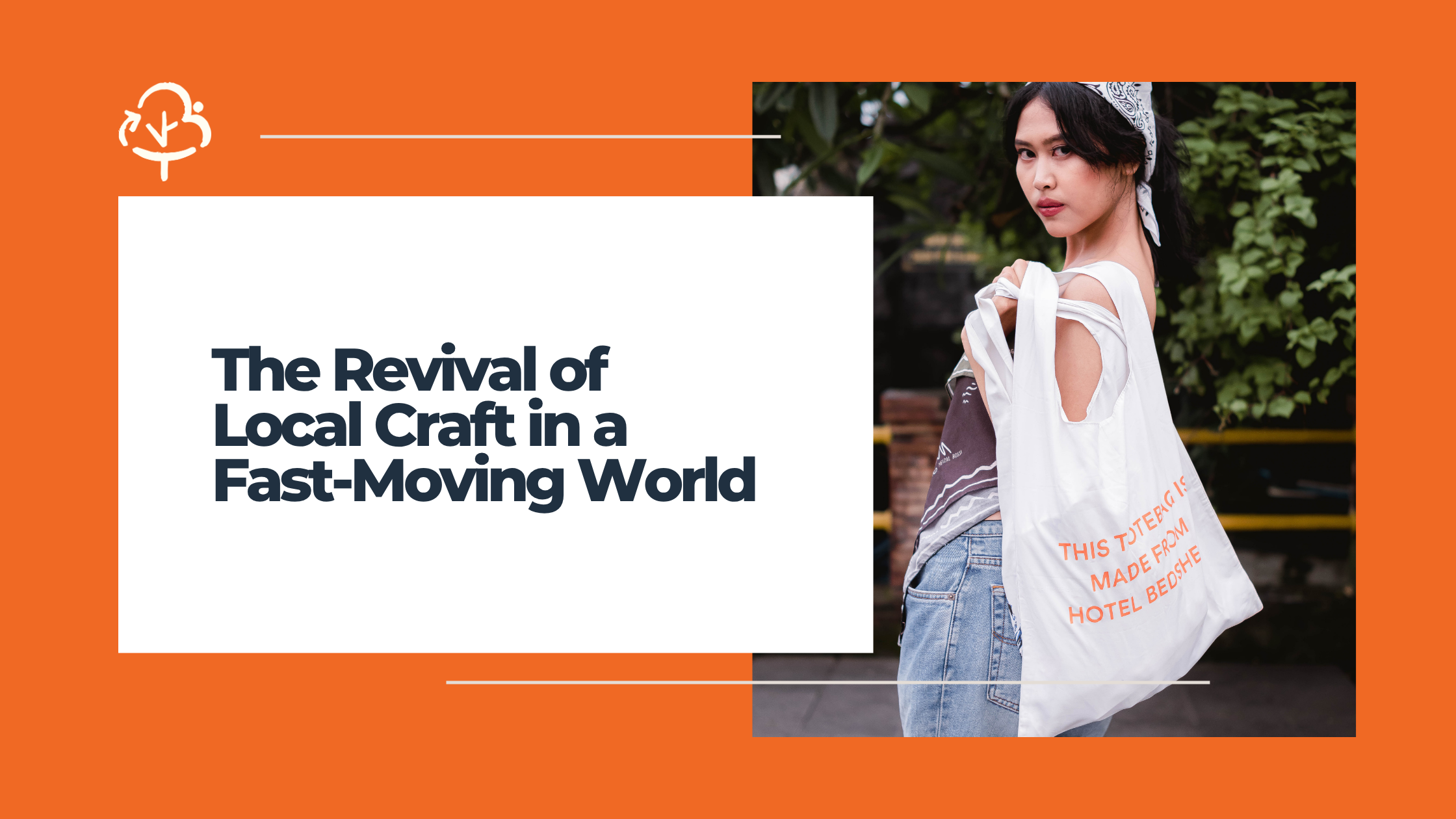
The Revival of Local Craft in a Fast-Moving World
In a world where everything moves fast—fashion trends, TikTok sounds, and next-day shipping—there’s something deeply refreshing about slowing down and looking around. Not just at what we wear, but where it comes from and who makes it.
That’s why we’re so excited about a growing global movement: localism in fashion.
It’s not just about nostalgia or supporting your neighbor (though that’s part of it). Local fashion is quickly becoming a powerful response to the waste, pollution, and disconnection caused by globalized fast fashion systems.
What Is Local Fashion, Really?
“Local fashion” doesn’t just mean made in Indonesia. It means made close to the community that wears it—often in smaller batches, using available materials, and relying on local talent, artisanship, and culture. It’s fashion that carries stories, not just style.
And with global supply chains getting more unstable, the appeal of clothing made closer to home is growing—both for its environmental benefits and its ability to strengthen local economies.
Why Local Is Better for the Planet
- Less transport = lower emissions
Shipping clothes halfway around the world adds tons of CO₂ to the atmosphere. Local production keeps that footprint small. - Better control over waste
When you make things locally, you can work with what you have—deadstock fabric, leftover materials, or even old bedsheets (sound familiar? Its us!). - More accountability
It’s easier to ensure ethical working conditions when the maker isn’t halfway across the globe.
Indonesia’s Hidden Strength: Craftsmanship
Indonesia has a rich tradition of textile and garment-making: from batik and tenun to tailoring and embroidery. But too often, these skills get pushed aside in favor of cheap imported fashion.
Now, thanks to a global shift toward slow, conscious fashion, those local crafts are being rediscovered—not as souvenirs, but as essentials.
At TRI Cycle, we’ve seen this firsthand. We work with local tailors and makers to transform textile waste into beautiful, practical pieces—from tote bags and aprons to pouches and uniforms. Every item has a lower footprint and a bigger purpose.
The Future Is Local—and Circular
Choosing local doesn’t mean giving up on style. It means choosing design that’s made to last, not just to go viral. It means celebrating the people behind the products, not hiding them behind a barcode.
And in our case, it means combining local craftsmanship with circular fashion—reusing what’s already here to create something new, useful, and uniquely Indonesian.
What Can You Do?
- Support local brands that are transparent about their process.
- Choose quality over quantity, and pieces with a story.
- Get to know your local tailor or join a repair workshop.
- Or just ask: “Who made this?” and “Where did it come from?”
You might be surprised by the answer.
At TRI Cycle, we’re not just upcycling materials. We’re reconnecting people—with their clothes, their community, and the values they wear every day.
Want to make something meaningful, together? Let’s talk.












